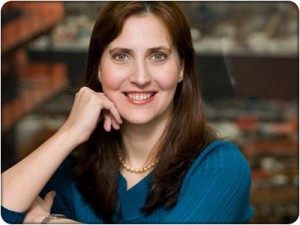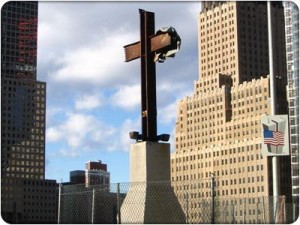Written by Jana Melpolder
America has been through a long and difficult journey throughout its 10 years after 9/11. This decade of loss and recovery not only belongs to Americans, but also to the family members that lost a loved one on September 11th. These families live in New York, around the United States, and even around the world. They come from a diverse background of faiths, communities, and economic levels. The 9/11 families lost a mother, father, son, daughter, or other next of kin. How has America helped them recover amongst its own grief?
 Meet Jennifer Adams, an inspirational woman who works for the non-profit September 11th Families Association. Several years ago, Adams worked in New York City at the World Trade Center in Tower One on the 89th floor. Luckily, her office closed in December 2000, and she was fortunate enough to not be in the twin towers on that heartbreaking day. Sadly however, she did lose a good friend who worked in Tower Two, and it remains a tragic memory for Jennifer.
Meet Jennifer Adams, an inspirational woman who works for the non-profit September 11th Families Association. Several years ago, Adams worked in New York City at the World Trade Center in Tower One on the 89th floor. Luckily, her office closed in December 2000, and she was fortunate enough to not be in the twin towers on that heartbreaking day. Sadly however, she did lose a good friend who worked in Tower Two, and it remains a tragic memory for Jennifer.Carrying the grief of September 11th, Jennifer volunteered right away to help recovery efforts start. She worked alongside family members of the victims and soon realized they didn’t have easy access to information. The news and internet was readily available, but this was a time before Facebook, widespread cell phone use, texting, and Twitter, meaning that in 2001 individuals had a harder time connecting with their loved ones. As Adams says, “the families realized that there was somewhat of a lack of information beyond the immediate next of kin…recovery of victims here at the World Trade Center site was a daunting task. There ended up being so many missing posters put up.”
Quickly the September 11th Families Association was created to serve the families’ basic needs, such as information and communication. Information given to the families included the events that were happening, the ceremonies, the support services that were available to those who wanted and needed them, and tragically the recovery of human remains that slowly happened throughout September 2001 and beyond. Adams says that recovering remains was a large undertaking for all involved, both emotionally and logistically. “It was very difficult for the families because their loved ones went to work that day and simply never came home. There are over 1,100 families that have still never received any remains of their loved ones, so the need for information was really important. It was really difficult to figure out how to assemble who was there [and] who survived. Our families that started this organization saw the need [for] a voice for the families.”
Throughout this past decade the September 11th Families Association has helped provide that voice. The organization has provided a newsletter for the families that want information and want to stay connected. They have direct contact with certain government agencies and officials, so the information they provide is accurate. This can be especially helpful to the families that don’t live in New York City because media coverage on Ground Zero can be very popular in New York City but not in other areas or countries. International families really benefit from the information and connections that the September 11th Families Association provides.
Adams notes that not every agency has continued to provide services to those in need. In fact, many organizations lessened the services they provided after the five-year anniversary of 9/11. Adams talked about how this particular organization is here to stay and that the September 11th Families Association will continue to serve the 9/11 families as long as they are looking for assistance or help.
Throughout the recovery efforts, her organization has not been alone either. Many faith-based groups have been highly involved in assisting those in need. Adams says, “Lutheran Disaster Response was one agency that really organized to help serve people that fell outside the box. I think it was 10 or 12 other faith-based groups [that worked] in order to serve people that were outside of the regular matrix of support services.” Adams mentioned that these groups really did quite a lot for those people who really needed it.
Many families and communities through America and the world are working together to bring understanding and remembrance to the tragic events of September 11th, 2001. This can be done on the anniversary every year, and especially on the 10th Anniversary that’s happening right now. It can also be accomplished through working together towards recovery.
Adams knows what it means to recover after such as devastating event. She says, “I would have to say I think one of the survivors who made it out of the towers that day, who was one of the volunteers at the tribute center that I run, said it best. He said, ‘My goal is not to get over 9/11. My goal is to learn to live with it because it will never go away.’ It’s something that a lot of veterans experience when they go to war; the trauma you experience you never get rid of and you never get over it. You just learn to live with it and find constructive outlets in order to adapt to it.”

